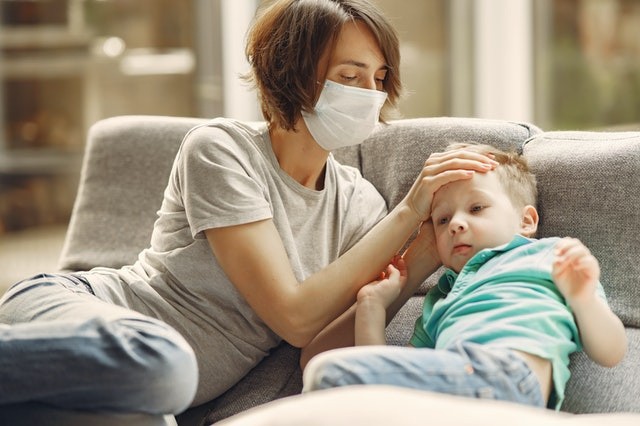Medical Groups and Experts Reveal How to Know if Your Child Has COVID-19
Medical groups and experts revealed symptoms that parents should look for to know if their children have coronavirus disease 2019 (COVID-19).

If there is a group of people who are raising concerns as some states are planning to have the in-person school reopenings, these are the parents. Everyone at all ages can be infected by the virus, but they only differ as to who is more susceptible and not.
It is difficult for parents in this time of global pandemic to know how sick or hurt their child is. An example of this is when you woke up early in the morning by a hair-raising barking cough of your child and when you rushed your child to the hospitaland you were told that it can be treated at home.
However, this time it is not easy to determine if your child is only having a common cough or flu or your child is already infected with COVID-19. Many doctors and researchers still have many questions about the virus.
The American Academy Pediatrics (AAP) that the signs for grownups and children are fairly similar. These are fever, chills, muscle pain, headache, sore throat, cough, shortness of breathing, and loss of taste or smell. AAP also added that there are evidences that show kids are less likely to have fever, cough, and shortness of breathing.
Moreover, kids are less likely to experience stomach problems or gastrointestinal issues. However, the Centers for Disease Control and Prevention said that gastrointestinal issues are a common sign of people who have COVID-19. This symptom can be experienced across all ages.
Meanwhile, for Dr. Margaret Aldrich, director of pediatric infection control with Children's Hospital at Montefiore in New York City, children are more likely to have nausea and diarrhea or poor feeding and decreased of appetite.
She also cautioned and warned not to downplay the symptoms that adults can experience and saying that kids are less likely to have it because there are still many things util now that experts, scientists, and researchers do not know about the virus.
Most importantly, parents should be aware of the multi-system inflammatory syndrome (MISC). Children continue to develop this and this is something that parents should look for.
Dr. Rob Darzynkiewicz, chief medical officer at telehealth provider Hazel Health, said to call a pediatrician immediately if you notice that your child is experiencing extreme tiredness, difficulty in breathing, confusion, bluish lips, vomiting, diarrhea, and fever that already lasted for three days.
Another medical expert also said that the challenge really is that viral illnesses are very common in children and oftentimes they also have fever, cough, congestion, and gastrointestinal problems.
Dr. Margaret Aldrich, Children's Hospital at Montefiore, said that you have to presume that your child has COVID-19 is she or he is showing symptoms most especially if you live in an area with a high number of infections. She said that it is good to be cautious in this time of the pandemic.
Aldrich recommended, "If you are living in a high-risk area, with lots of COVID cases, and your child develops a respiratory viral illness, I would presume that they have COVID and touch base with your pediatrician to get further guidance." Dr. Aldrich also explained that parents should be more cautious if they have babies at home.
Subscribe to Latin Post!
Sign up for our free newsletter for the Latest coverage!
© 2026 Latin Post. All rights reserved. Do not reproduce without permission.















